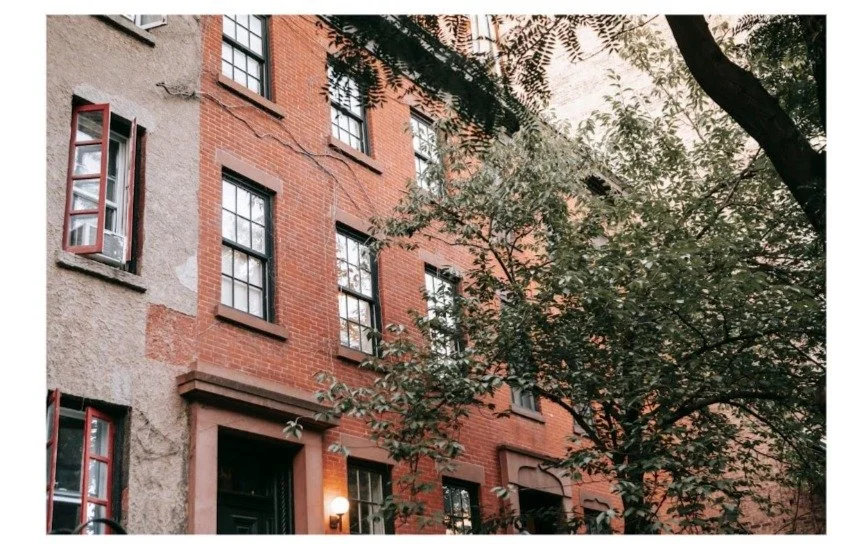Selling a NYC Home in Probate: What Every Executor Needs to Know
If you're the executor of a will that includes real estate in New York City, you're about to learn that dealing with probate isn’t just paperwork—it’s a full-blown process. Between court requirements, legal timelines, and property logistics, selling a home in probate can feel like juggling while reading fine print.
It’s not impossible, though. With a clear head and a bit of strategy, you can move through it efficiently—even if the city’s fast pace isn’t exactly mirrored in the probate court's timelines.
Working with a trusted probate real estate agent can make all the difference. They’re not just there to list the home—they understand the court’s pace, how to handle co-op boards, and what paperwork’s needed when. It’s the kind of help that saves time, energy, and sometimes even your sanity.
Let’s walk through what you need to know, step by step.
Photo by Giallo from Pexels
What Probate Actually Means in NYC
Probate is the legal process of validating a will and handling the distribution of someone’s estate after they pass. If real estate is involved—and it often is in NYC—it can’t just be sold right away. The Surrogate’s Court needs to formally approve the sale, even if the deceased clearly left the property to someone.
This process ensures everything’s done fairly and legally, but it also creates a few speed bumps. Especially when you're dealing with New York’s housing market, where timing really is everything.
The Role of the Executor (and Why It’s a Big Deal)
As executor, your job is to settle the estate. That includes:
Identifying and valuing assets
Paying off debts
Filing paperwork with the court
Managing the sale of property
It's part administrator, part negotiator, and part firefighter—especially if there are family disagreements or unexpected liens on the property.
If you’re not sure where to begin, don’t panic. Most executors aren’t experts, and many of them have full-time jobs (and lives) outside of this role. That’s why it helps to understand what steps to take and when to ask for help.
Step One: File for Probate in Surrogate’s Court
The process starts with filing a petition for probate with the Surrogate’s Court in the county where the deceased lived. In NYC, that could mean Manhattan, Brooklyn, Queens, The Bronx, or Staten Island. The court then reviews the will, appoints the executor (that’s you), and officially kicks off the probate process.
Tip: If the will names you as executor, you’re not fully in charge until the court says so. That step is called being “appointed” or receiving “letters testamentary.”
Once appointed, you can start taking real action—like securing the property, collecting documents, and preparing for a potential sale.
Step Two: Understand the Property’s Legal Status
Before listing the home, you’ll want to confirm a few things:
Is the property actually in the estate’s name?
Are there any outstanding mortgages, taxes, or liens?
Does the will specify who inherits the property?
Are there tenants or family members still living there?
This part matters because you can’t sell what you don’t fully control. Sometimes additional court approval is needed—especially if there are disputes among heirs or if the property isn’t mentioned clearly in the will.
Step Three: Get the Home Appraised (Don’t Skip This)
An appraisal does more than tell you what the home is worth. It also helps:
Prove the estate’s value for tax purposes
Avoid selling too low (which can lead to legal trouble)
Establish fair market value for all interested parties
In a competitive market like NYC, it’s smart to get more than one opinion. But at minimum, you’ll need a qualified appraiser who understands probate sales—not just a general ballpark figure from an online estimate.
Step Four: Get Court Approval to Sell
Here’s where things slow down a bit. In many probate cases, especially when beneficiaries disagree or the will is vague, the court must approve the sale before anything goes under contract.
To do that, you’ll need to:
Submit the purchase agreement to the court
Prove the price is fair (based on the appraisal)
Notify heirs, so they have a chance to object
Possibly attend a hearing, depending on complexity
Once approved, you’ll receive permission to close the sale. Without it, even a cash buyer with a great offer can’t move forward.
Step Five: List and Market the Property the Smart Way
Selling a probate home isn’t quite the same as a regular sale. Timing matters, but so does positioning. You’re not just trying to attract the highest offer—you need buyers who understand the extra paperwork and timeline involved.
Here’s where working with professionals becomes key:
Choose an agent who knows probate and NYC real estate
Be upfront about the timeline and conditions of the sale
Consider light updates or cleanouts to make the home more appealing
Some buyers (especially investors) love probate properties because they can move quickly with cash offers. Others might get skittish if they sense delays or uncertainty. Clear, honest communication wins every time.
Co-ops and Condos: A Whole Extra Layer
If the home is a co-op or condo—which is very common in NYC—you’ll also need to deal with the building board. That means:
Submitting a board package (even for a probate sale)
Waiting for approval, just like a normal resale
Sometimes dealing with extra legal reviews or estate-specific clauses
Co-op boards can be unpredictable, and they don’t speed up just because the property’s in probate. Add this step into your timeline early, so it doesn’t catch you off guard.
When There’s No Will: Administration Instead of Probate
If the deceased didn’t leave a will, the process shifts slightly. It’s called “administration,” and the court appoints an “administrator” instead of an “executor.”
The rest of the process is fairly similar, but the rules about who inherits and how the property can be sold are based on New York’s intestacy laws. If that’s your situation, it’s worth talking to an estate attorney or seeking guidance before listing the home.
Common Mistakes to Avoid
A few common hiccups can stall (or derail) a probate sale in NYC:
Jumping the gun. Listing the property before getting court approval can lead to legal delays.
Pricing emotionally. Heirs may overvalue the home due to sentimental reasons. Stick to market data.
Ignoring tenant rights. If the property has renters or family members still living there, they may have legal protections you need to honor.
Skipping clean-up. A home full of clutter doesn’t show well. Invest in a respectful cleanout, especially if the home has been untouched for a while.
How Long Does It All Take?
Probate sales in NYC don’t move fast. While every case is different, expect:
2–4 months to be appointed as executor
Another 3–6 months to get court approval and prepare for sale
1–3 months to close after finding a buyer
So yes, this is a marathon—not a sprint. But understanding the timeline makes it easier to manage expectations (yours and the heirs')
Photo by Charles Parker from Pexels
You Don’t Have to Go It Alone
No one expects you to become an expert in probate law overnight. This is a tough job that comes with emotional weight and real financial stakes. That’s why leaning on the right professionals—from estate attorneys to real estate agents who understand probate—is more than helpful. It’s necessary.
You’re not just selling a home. You’re carrying out someone’s final wishes while keeping your own life moving. That’s no small task—but with patience, preparation, and a clear checklist, it’s absolutely doable.








